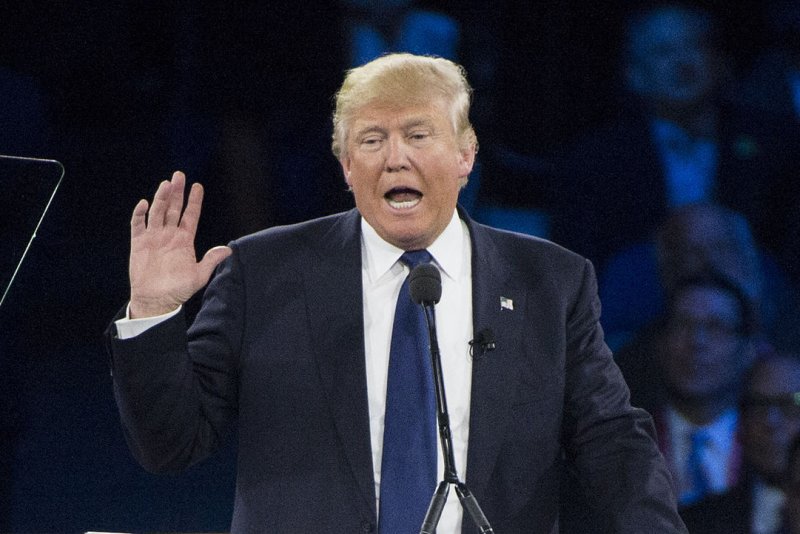Republican presidential candidate Donald Trump delivers a speech in Washington last month. If Trump fails to win Wisconsin's primary on Tuesday, he will need to win about 55 percent of the remaining delegates to secure the party's nomination. Photo by Kevin Dietsch/UPI |
License Photo
WASHINGTON, April 1 (UPI) -- The delegate math in the Republican race is beginning to narrow for front-runner Donald Trump, a UPI analysis shows.
With polls showing Wisconsin, which votes on Tuesday, leaning toward Texas Sen. Ted Cruz, the effort among some Republican party loyalists to prevent front-runner Donald Trump from gaining the 1,237 delegates needed to secure the GOP nomination is picking up steam.
The bottom line: While Trump still holds a commanding lead in the delegate count, the possibility he falls short of the magic number, triggering a brokered Republican convention is more realistic now than at any point in the campaign so far.
Trump has signaled he's aware of the need to be prepared for an all-out delegate fight in Cleveland, hiring a veteran of past GOP conventions to oversee his floor operations at the convention this summer.
And, according to a Politico report Friday, he may need it. The report cites interviews with more than a dozen unnamed sources close to the Republican National Committee who say it's possible more than 100 of Trump's delegates bound to vote for him on the first ballot would bolt if voting reached a second ballot.
So how likely is a second ballot?
If Cruz were to win most or all of Wisconsin's 42 delegates, Trump would need to win about 55 percent of the delegates remaining to secure the number needed to win the nomination on the first ballot.
The good news for Trump is, after Wisconsin, the race turns to much friendlier terrain. He holds a commanding lead in his home state, New York, the next to vote on April 19. After that, a string of Northeast and mid-Atlantic states vote in a clump on April 26. Combined with New York, those states have 324 delegates up for grabs.
Other than in Wisconsin where polls show him trailing Cruz by 10 percentage points, Trump has performed best among primary voters in traditionally Democratic-leaning states.
Of the nine primaries or caucuses held so far in states that went for President Barack Obama in 2012, Trump has won five and finished a close second in three. Two of the second-place showings were in general election tossups, Iowa and Ohio, where Trump ran a strong second. His only other blue state losses were in Minnesota, where he finished third, and Maine.
He was also victorious in three other New England states that have already voted -- New Hampshire, Vermont and Massachusetts.















